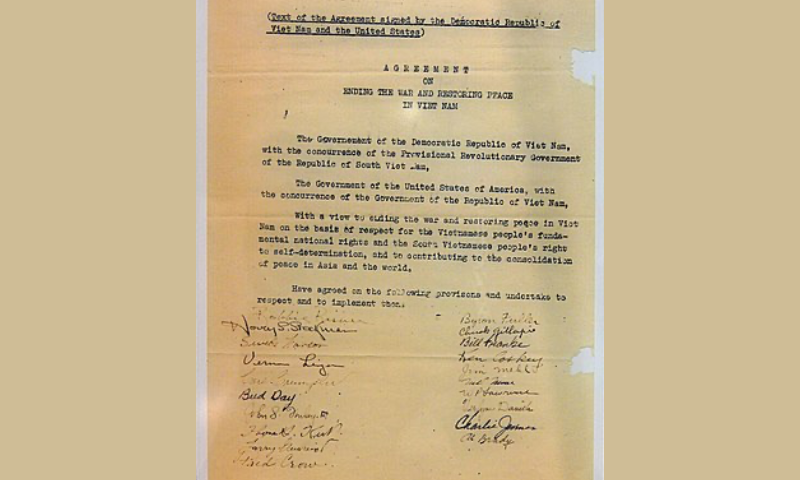Barton Swain
WSJ, Jan. 20, 2023
“… in his view, America won—only in a different way. We stopped communism, which didn’t advance in Indochina any further than it reached in 1975.”
When I was a teenager in the 1980s, popular culture had basically one message on the Vietnam War: that it was conceived in American arrogance, was perpetrated by American savages, and accomplished little but psychological devastation and national disgrace. Francis Ford Coppola’s “Apocalypse Now” (1979), Oliver Stone’s “Platoon” (1986) and “Born on the Fourth of July” (1989), Stanley Kubrick’s “Full Metal Jacket” (1987), Brian De Palma’s “Casualties of War” (1989)—these and a thousand other productions, documentaries and articles told my generation that the war had been a gigantic fiasco that turned those who fought it into war criminals and frowning, guilt-ridden drug addicts.
The war ended officially on Jan. 27, 1973, with the signing of the Paris Peace Accords. That’s 50 years ago next Friday—an anniversary that will likely occasion a round of retrospective think pieces and cable-TV segments on the war’s legacy. More will follow in 2025 to mark the final American pullout from Saigon in 1975.
The country has moved on since the ’80s. The Vietnam War no longer elicits the sort of ostentatious regret it did a generation ago. To confine the discussion to Hollywood, “We Were Soldiers” (2002) was one of the first major films to portray the average American soldier in Vietnam as decent and valorous; more recently “The Last Full Measure” (2018), though indulging in the usual antiwar pieties, acknowledges the bravery and decency of American soldiers. We’ve moved on in politics, too. The great scourge of supposed American war crimes in Vietnam, John Kerry—the man who averred in 1971 that American soldiers serving in Vietnam perpetrated war crimes “in fashion reminiscent of Genghis Khan”—was the Democratic Party’s presidential nominee in 2004. He felt obliged to refashion himself as a war hero, and he lost.
The Vietnam War doesn’t lend itself to unambiguous interpretations in the way many wars do. But with media-generated myths no longer dominant, and with the pain of losing 58,220 servicemen subsiding, are Americans ready to think about the whole thing anew? “Maybe,” Jim Webb answers after a thoughtful pause. Mr. Webb, 76, who served as President Reagan’s Navy secretary (1987-88) and a Democratic U.S. senator from Virginia from (2007-13), commanded a Marine rifle platoon in the Vietnam bush in 1969-70. “Maybe,” he says again, looking unconvinced. … [To read the full article, click here]


